More Than Ever Square-Enix Needs The Enix Part Of Its Name To "Figure It Out." (i.e., What's Going On With DQ12?)
By ZombiePie 9 Comments
Doesn't The Name "Square-Enix" Imply Two Companies Under One House?
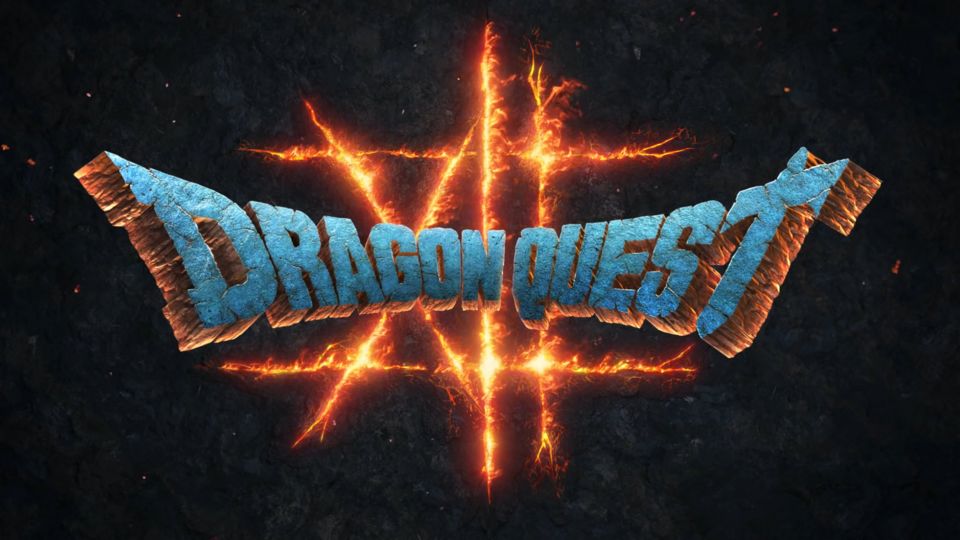
Square-Enix has been back in the news for all the wrong reasons again. As reported by Bloomberg and then repeated by our very own Jeff Grubb, the company's gross revenue was in the green, but overall profits dropped approximately 65% this last fiscal quarter. In response to this news, the company's stock price on the Tokyo Stock Exchange at one point fell by nearly ¥1,000, its worst intraday drop in almost three years. Bloomberg's report included three anonymous testimonials from company shareholders that attended Square-Enix's post-earnings call, and the details that have come forward are shocking. Firstly, one of Bloomberg's sources claims company president, Takashi Kiryu, stated verbatim, "[Final Fantasy 16] did not meet the high end of the company's expectations." Curiously, not four weeks ago, Kiryu told the press that the game had sold three million copies during launch week, and this was an "extremely strong" performance by a game presently locked to the PS5. Regardless, during the most recent post-earnings call, Kiryu stated to shareholders that Final Fantasy XVI's struggles are due to what he believes to be the "slow adoption [rate] of the PS5," which does not align with what Sony has reported about the console's sales trajectory.
Admittedly, three million units is an impressive amount. So, let's explain why Square-Enix's upper management might view Final Fantasy XVI's performance as "disappointing." First, the company's upper management placed a sales estimate for the game described as "high-end," but no number is attached to that label. Still, as reported during Game Mess Mornings on 08/07/23, Square-Enix shared Marvel's Spider-Man, one of the best-selling games on the PS4, as an example of what they expected Final Fantasy XVI's sales to emulate. Likewise, corporate leaders at the shareholder meeting expressed shock and disappointment that Final Fantasy XVI did not echo the massive success seen with Final Fantasy XV's launch, which remains the fastest-selling Final Fantasy game with 5 million units shipped and sold digitally in its first 24 hours. It is important to note that the presentation reportedly did not mention that Final Fantasy XV was a multiplatform release. This point is vital to consider when you recognize that Final Fantasy XVI remains a platform exclusive, at the time of this blog's original publishing date, to the PS5. And much like the rest of the Japanese video game industry, the meeting shared that mobile sales and revenue have experienced a stark decline compared to Pandemic-era peaks. Overall, the conference featured a lot of corporate equivocation and further evidence that Square-Enix is the worst company in the games industry at setting realistic game sales targets.
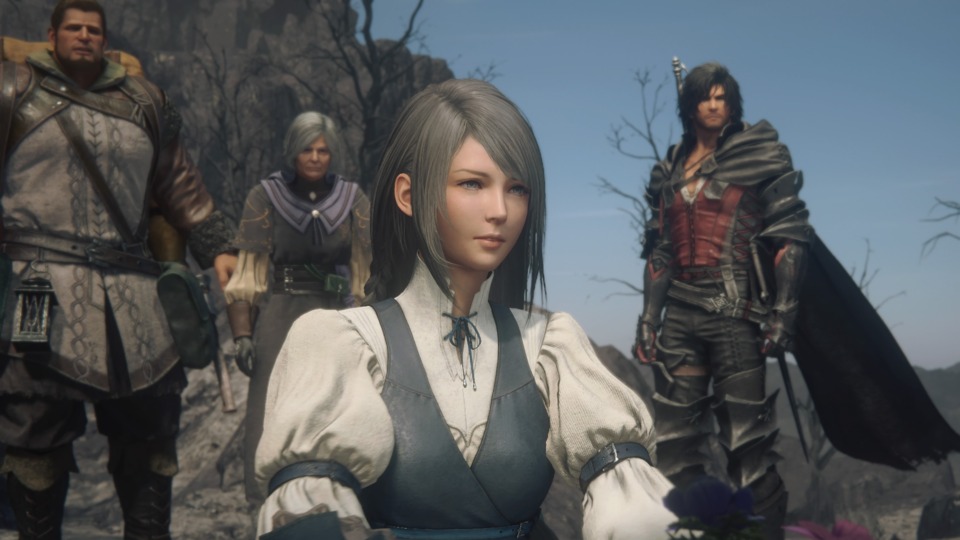
I could spend an entire blog talking about why Square-Enix being off its rocker isn't breaking news and why they are a fortunate company to have money-making apparatuses like Final Fantasy XIV and Kingdom Hearts to keep them afloat. However, if Bloomberg's sources and report about the recent shareholder's meeting are accurate, a different storyline is more interesting to remark about. The conference made few mentions about Enix, half of the company, its projects, the current state of Dragon Quest XII, possible leadership changes with the Dragon Quest Team, and Dragon Quest Treasures being a severe underperformer. These tidbits are undoubtedly odd, considering Dragon Quest has been previously one of the most consistent earners for the company throughout its history. When you remember the last we saw a mainline Dragon Quest title was Dragon Quest XI in 2017, and its MANY re-releases, Square-Enix putting all its hopes on Final Fantasy XVI, seems especially cruel. That's particularly true when you recognize that Dragon Quest XII's development cycle continues to progress at a snail's pace AND the Octopath-styled remake of Dragon Quest III continues to be MIA. So, what's going on with Enix, and why isn't Square-Enix putting more pressure on it to get its act together?
Isn't Enix Supposed To Be The "Normal" Branch Of The Company? (Answer: No, And It Never Was!)

Let's go back in time for a bit. The year is 2001, and Enix Corporation has a problem. The transition from the PlayStation to the PlayStation 2 isn't going great, and there's been a mass exodus with the company's manga and anime division, Gangan Comics, after writers, editors, and artists felt Enix's management was putting too much emphasis on making Dragon Quest-based content and focusing entirely on the shōnen demographic. Fun fact, that mass departure resulted in the formation of Mag Garden, which later merged with Production I.G. Many of those Mag Garden employees have spearheaded many of the I.G. shows you know and love today. No matter, beset with chronic issues, Enix is entertaining the idea of joining forces with another Japanese developer, and it limited its search to Namco and its then-rival, Squaresoft. Enix eventually preferred merging with Squaresoft partly because Namco wanted a deal where the two brands would be equals.
In contrast, Squaresoft, lacking money at the time, was willing to give the advantage to Enix. Nonetheless, the proposed merger was put on hiatus until Squaresoft could get its ducks in a row after The Spirits Within nearly bankrupted them. When they forced much of its old leadership to leave and then released Final Fantasy X and Kingdom Hearts, Enix agreed to the merger with caveats. Squaresoft was permitted to be the first name on the label and call the resulting union a combination of two developers "at their height." Still, the paperwork showed that most of the company's shares fell into Enix's hands. After Squaresoft founder Masafumi Miyamoto threw a fit, the final ratio was that one Square share resulted in 0.85 shares of Enix. Furthermore, while several of Squaresoft's founders and original financiers were given golden parachutes, virtually every corporate executive from Enix was given the green light to stick around and maintain their leadership positions.
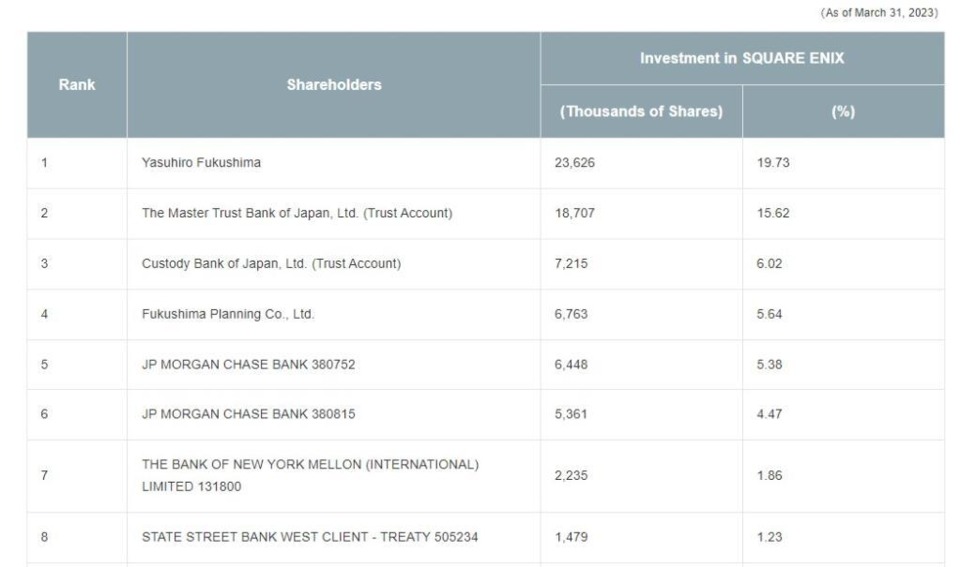
To this day, and this is a fact Square-Enix wants you to pretend isn't real when it is, the Enix faction owns a more significant share of Square-Enix than the Square faction, and over time, they have in fact, increased their control on the company. Yasuhiro Fukushima, Enix Corporation's founder, is the company's largest individual shareholder, with an approximately 20% stake. That solitary fact is one of the reasons why rumors of the company shedding assets to make itself attractive to the likes of Sony are wishful thinking on the part of people with a superficial stake in this current console war. Enix prefers working with Nintendo and has benefited from re-releasing its games on non-Sony platforms. Given that AND the company's track record of misjudging sales estimates and constant mismanagement of non-Japanese studios, all signs don't point to a conspiracy and suggest Square-Enix is simply dysfunctional. They have a handful of tentpole properties that keep the lights on and further internal projects the company can set unrealistic expectations for in the future. Thus, the crappy corporate feedback loop becomes a perpetual ouroboros. Likewise, while Squaresoft purged its old guard after the company almost filed for bankruptcy following The Spirits Within, the old guard of Enix is still in the company and STILL holds the reigns they were given when the two merged over twenty years ago. Even if Enix needs to clean house, the people who would most likely be impacted still have massive shares in the company to thwart those reform efforts. Therefore, even though there were legitimate concerns about the state of Dragon Quest XII and Enix's investments in internal development, no one was going to bring that up during the share-holders meeting because everyone taking those questions were the very Enix head-honchos that block any attempts at changing the status quo or putting pressure on Enix.
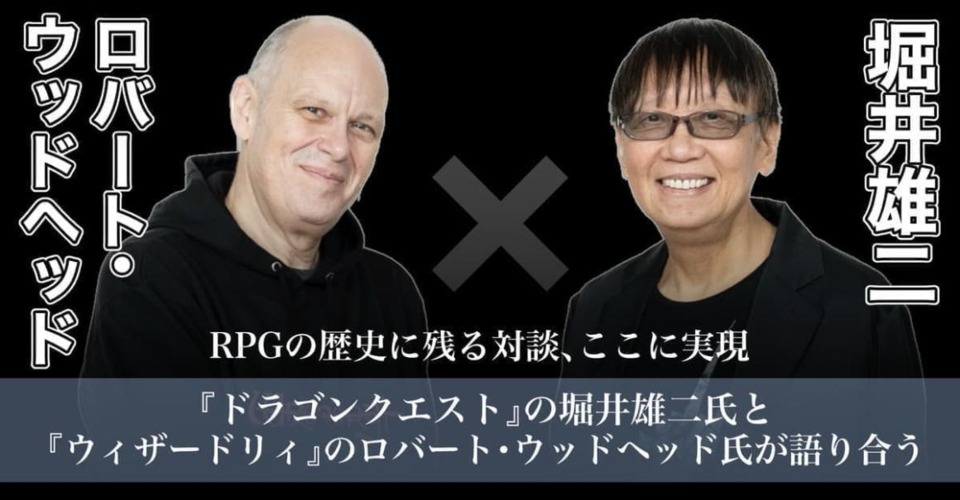
To Enix's defense, their old guard has, until recently, had one of the surest touches on the pulse of the domestic Japanese video game market. That's largely thanks to the tireless work and leadership of Yuji Horii, who gave the world Portopia and Dragon Quest. Now, when people rank all-time most essential figures in the Japanese video game industry, Miyamoto is the rightful taker of the #1 position. Nonetheless, Yuji Horii is #2, and for some reason, I always get pushback for saying what should be a widely accepted fact. Kojima, Yuji Naka, Sakaguchi, Satoshi Tajiri, Yoshi-P, and Masaya Matsuura do not rank above Yuji Horii's overall legacy and importance. They don't. That's because they all live in an industry whose foundation exists thanks to Horii's massive commercial and critical successes. Say all you want about Dragon Quest being "the same thing, every game," but Horii directed and designed what is now a cultural landmark in Japan that has persisted for over thirty years. And guess what? It wasn't easy sanding off the rough edges of CRPGs like Wizardry and Ultima to make roleplaying games that appeal to children and general audiences, and many of the gameplay tropes and idioms we expect as guarantees when playing an RPG draw their lineage to Dragon Quest. And if you're going to respond by saying, "Has Horii made games other than Dragon Quest?" like a Metal Gear Solid stan once posited on my Tumblr, let's not forget that the man created Portopia and practically invented the modern Japanese visual novel. And speaking of Portopia, if you are a Kojima defender, we should discuss how Portopia is one of the primary reasons why Kojima was inspired to make video games in the first place.
Yuji Horii is an untouchable in Japan, and he's earned that status. He's headlined some of the best-selling video games in Japanese history. As such, he has all the possible blank checks and final-cut privileges one can imagine a person having after working his ass off for over thirty years in the industry. And therein lies a problem. Horii is nearing 70, and even before the announcement of Dragon Quest XII, he revealed he would be transitioning from working full-time at Square-Enix to operating as a contractor; ergo, he signaled a transition toward retirement. And with him pushing 70, who can blame him? However, the announcement of Dragon Quest XII dates to 2021, and there has yet to be much of a sign as to who is taking up Horii's role as the forward-facing figure representing the new blood in charge of the franchise. The game's consistent absence at TGS is also undoubtedly a red flag. Furthermore, Japanese sources call the development of Dragon Quest XII so problematic that it is rumored the team working on the game has asked Horii to return to the project to right the ship. Your "Get Out Of Jail" card being dragging a septuagenarian back to the office, if true, is not a good look.
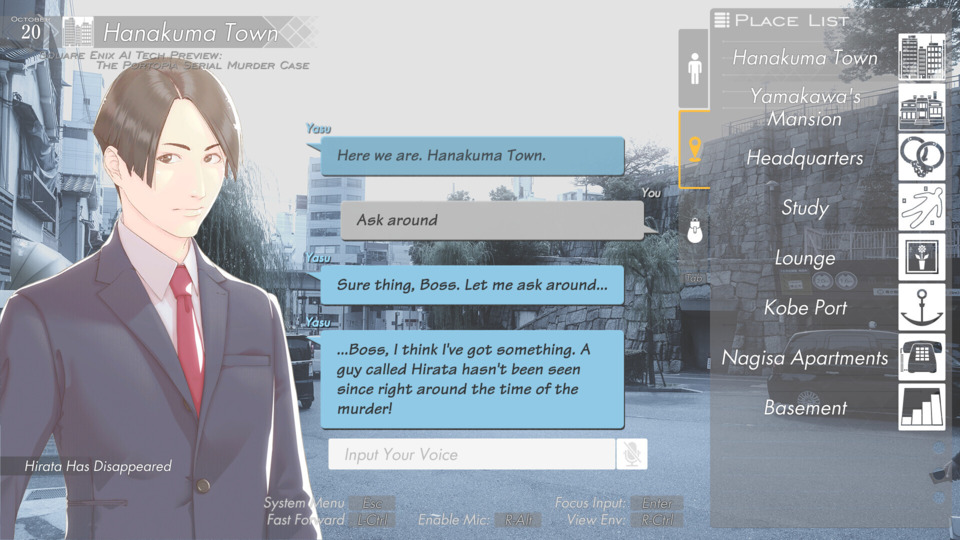
All Signs Point To Dragon Quest XII Being A Messy Development Cycle, And The State Of The Series Is Weird
Dragon Quest XII: The Flames of Fate was the headline announcement of the series' 35th-anniversary celebration event. Horii even got on stage to introduce the game's director, Takeshi Uchikawa, who directed Dragon Quest XI and had nominal responsibilities with the development of Dragon Quest Treasures. Though details were scant, the few that were shared spoke to a desire to try out new things with the game. The game's public relations team enthusiastically announced that it would use Unreal Engine 5 to assist the development team in getting it presentable in record time, and there were murmurs it would be a reaction to Breath of the Wild. I must acknowledge that fans have often disputed that last part as a possible mistranslation or an off-the-record statement with little factual basis. However, the few times Horii has talked about the game, he has echoed that "this is a big game" and that "the traditional command battles will also be revamped." Therefore, something is happening to make Dragon Quest XII a reflection of some of the popular trends in the industry, even if the details as to what that may be are few and far between.

Even at the time of Dragon Quest XII's announcement, Horii made it clear that the game had begun development years prior. So, it's safe to assume that after Dragon Quest XI launched in 2017, a small portion of the Dragon Quest team began planning the next entry around 2019 to 2020. I don't think the team started the planning process for a new title immediately, considering how much time and care was put into re-releases of 11, especially the Switch port, and how many spin-off games also came out between 11's release and the announcement of 12. Regardless, this situation is erring toward one of the most extended sessions of radio silence on the mainline franchise since the gap between Dragon Quest VII and Dragon Quest VIII. However, considering how long it takes you to complete Dragon Quest VII and that gap was due to a not-insignificant console generation transition, it is vastly more understandable than the current gap. That's partly why some suspect Enix is smarting over the release of Dragon Quest Treasures and its anemic sales and reviews. The game features a relatively open world and action-based gameplay some thought could serve as a template for the mainline series. However, the key here is that the game wasn't the barn burner anyone was hoping for, and the freedom to experiment with Dragon Quest XII might have been dampened by its producers. We will never know how much backtracking has happened, but games that have been in development for more than three years and only have one teaser trailer to show for it always have their reasonable share. Also, it is safe to assume the release and reception of Dragon Quest Monsters: The Dark Prince is something Enix will be watching closely.
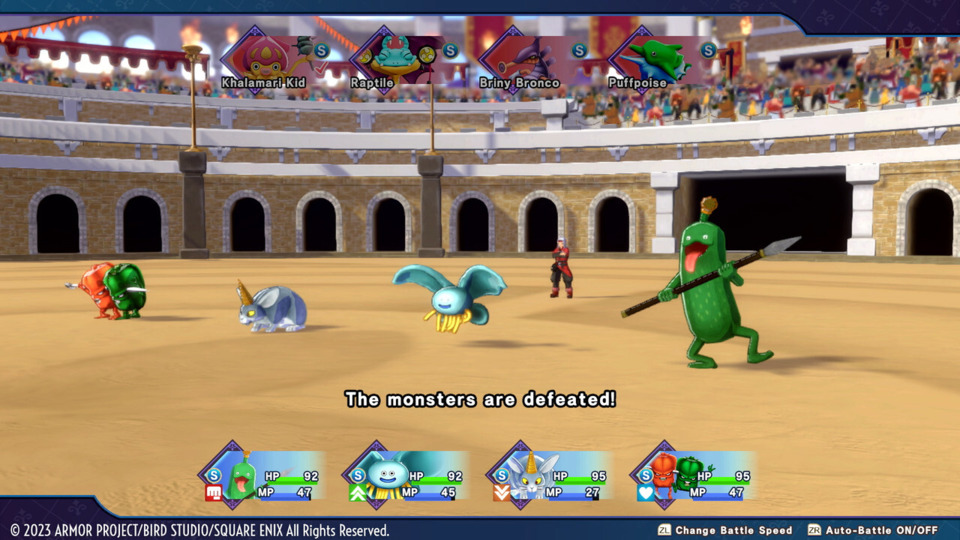
And we have to talk about Dragon Quest III HD-2D Remake that got as much buzz as the announcement of Dragon Quest XII. That game was all the talk on Japanese Twitter for a week, and it has been MIA for over two years. It is not a simple remaster, and a lot of time and effort is required to make a version of Dragon Quest III that looks like it is running on the Octopath game engine. However, Dragon Quest III's core mechanics and structure are relatively simple, though incredibly novel and groundbreaking at the time of its release, meaning the graphics should be the lion's share of its development time. Normally, remasters above running a new filter over the original don't take over three years before we see the fruits of their labor. What could be happening behind the scenes to cause this highly anticipated remake to progress like it is a mainline entry in the series? I have no idea, but I also fear Enix doesn't realize how much this game needs to come out as soon as possible. If the DQ12 team is still planning to rock the boat, having a game that evokes retro and throwback sensibilities should mute some pushback. I don't know about you, but I remember the protests online and in Japan when there was a slight suggestion Dragon Quest IX could POSSIBLY be an action roleplaying game. One of the leaders of those protesters in the streets of Japan was a Giant Bomb forum poster in the middle of their study abroad program. And when it was revealed that the game would still be turn-based, did things improve? NOPE! People kept protesting because they thought it being a DS game meant the Dragon Quest franchise was starting to turn its backs on its fans. It was one of the dumbest video game controversies I have ever seen.
Recently, the Dragon Quest series has increasingly relied on smaller-scale spin-offs to keep its torch and audience feedback loop intact. This year will see the free-to-play mobile game Dragon Quest Champions and the return of the Dragon Quest Monsters sub-series with The Dark Prince. These spin-offs do relatively well outside of a few exceptions, generally selling one million to half a million copies in Japan alone. Nonetheless, let's not beat around the bush and deny that a mainline Dragon Quest game wouldn't sell ten million copies if it were a deliberately retro turn-based RPG. The gaps between mainline entries are usually deliberative to court a sense of specialness with each subsequent release and to guarantee the series never overstays its welcome with each console generation. Enix keeps interest alive by revealing secrets to the game currently in development in Shonen Jump or similar-minded magazines. This gets to a topic that sometimes draws battle lines, but the Dragon Quest series doesn't age with its audience. It delivers on a slightly different permutation of a similar formula, drawing in people trying to rekindle their nostalgia and opting in new people into the Dragon Quest multi-media culture thanks to its information blitz. With children's media and the games associated with younger audiences changing massively by the year and Japan's declining birthrate, there's something to be said about if that incredibly reliable playbook will draw the same results it has before. I'm not counting Dragon Quest out, but 12 will be the hardest the franchise will need to work to reach the meteoric heights of its predecessors.
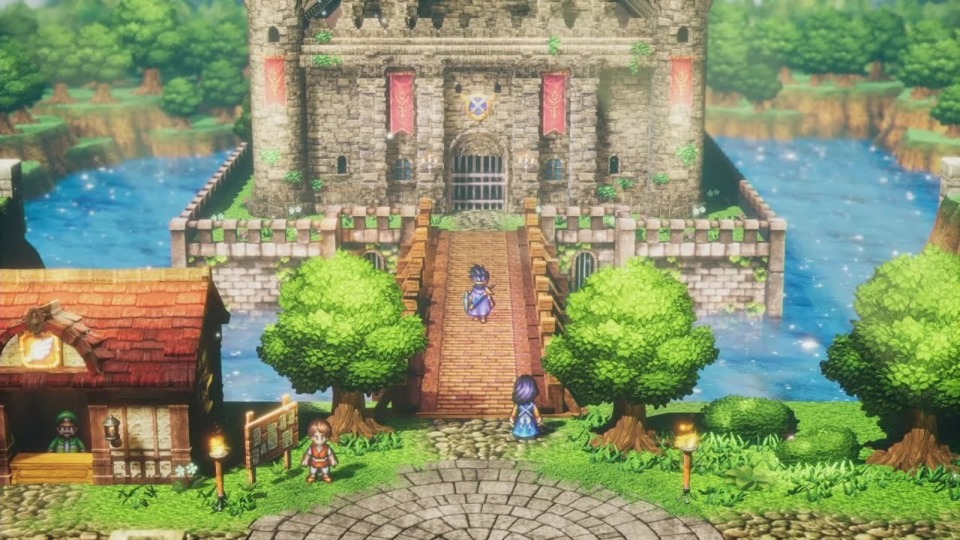
It Shouldn't Be This Hard To Make A Mainline Dragon Quest Game
Let's take a few steps back to return to what little we know about Enix's twelfth planned golden goose. "Revamps" to the franchise's traditional command-based battles are supposedly in the works. All that sounds interesting, but I have to be a slight jerk and chime in and ask, "Do you honestly need to do that?" What are the core mechanics of Dragon Quest? If you ask me, the series can be boiled down into five words: Attack, Magic, Defend, Item, and Flee. Maybe, you also want to throw in the series' reliance on art originating from Akira Toriyama, but even that doesn't change the fact that Dragon Quest isn't a recipe with a secret ingredient. It's a simple franchise, and while some of you might call it too simple and grognard, it's a formula that has been rewarded with millions of sales over thirty years. From a design perspective, Horii believes that roleplaying games should never cease to reward the player's in-game work. As such, his idea that all RPGs should allow users to reach the end as long as they put in their time has been at the heart of the Dragon Quest series since its inception. And guess what? People like that part of Dragon Quest. So, why put extra development time on your plate when it's unnecessary? Related, the plan for Dragon Quest XII to be notably darker in tone sounds like the dumbest idea ever. People like the power fantasy and escapist elements of Dragon Quest, and removing that and trying to do something deeper is bound to piss people off.
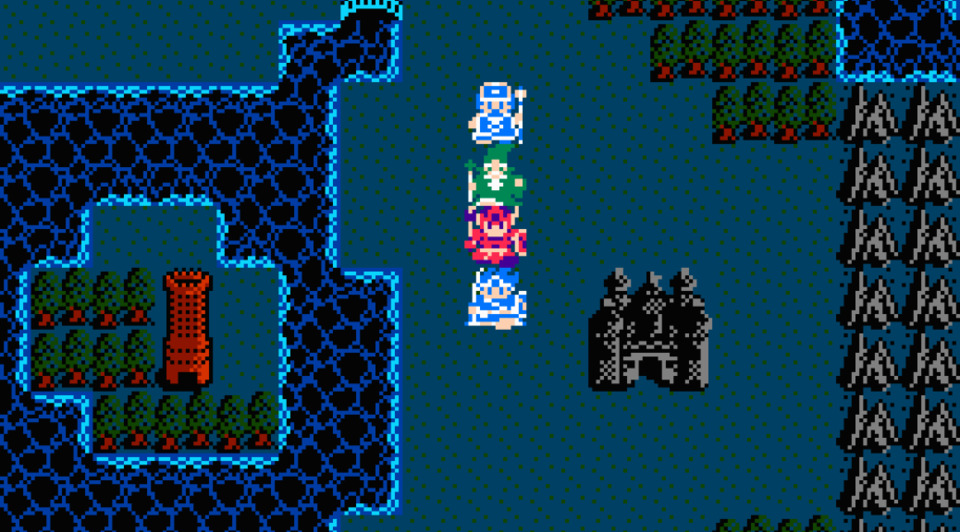
And I and others continue to talk about the "Dragon Quest Team" as if it is a monolith that has existed as old as time, but it's a relatively new development. Most forget this fact, but the Dragon Quest "Team" that develops Dragon Quest games internally at Enix didn't exist until Dragon Quest X. Previously, Dragon Quest titles were contracted to other studios with Horii's crew and himself functioning as directors and creative leads. As such, I recognize that the team reportedly struggling with Dragon Quest XII is only on its third proper Dragon Quest title. Even then, it's pretty ridiculous that they need a Dragon Quest savant, like Horii, to help them out of the weeds when they have over twenty years of work to review and utilize that others have done for them. Since VII set the bar for long games that take hundreds of hours to complete if you are not careful, the development of these games has borrowed structural motifs and gameplay design from previous titles, which has alleviated the amount of asset generation the Dragon Quest Team has needed to conduct with their last two games. And let's be honest, Dragon Quest XI looks like a game that took years to build, but it definitely isn't a game that took years to conceptualize or write.
To return to me actively questioning if the early hints of the game's tone and structure are for the best, does the Dragon Quest franchise need to get even more open and vast than it already has? Is that really what people are asking for these days? If the Dragon Quest franchise owned up to its reputation as a tired-and-true formula that serves as a universal time capsule into retro-styled RPGs, it would still sell like hotcakes and likely make future titles easier to produce. For goodness sake, could you imagine how excited people would get if the Enix team announced they were partnering with Tokyo RPG Factory? However, with Enix still going through the expected growing pains any developer goes through when trying to establish an internal development footprint, they are likely gun shy about working with partners that would create competing products they feel could take away the shine from mainline titles. That's why the only partners they are working with these days, as they continue trying to fit square pegs into round holes, have to piddle with spin-offs like Treasures or Dragon Quest Monsters. Nonetheless, every possible problem they are experiencing with Dragon Quest XII has a studio that likely has the answer to that problem. The "secret sauce" to what makes a Dragon Quest game popular or a critical success is NOT a secret soup recipe that gets forgotten when a Polish lunch lady dies.
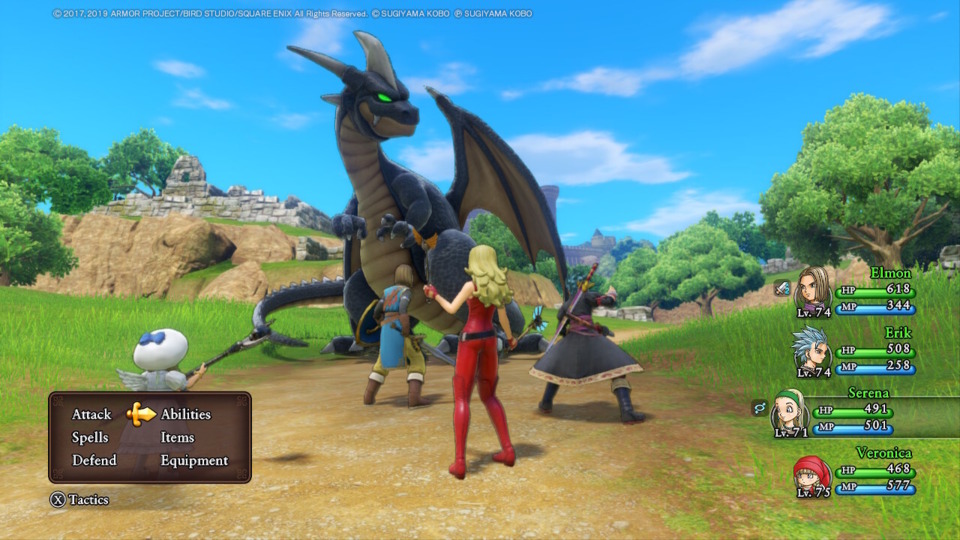
What is unfair is how we hold the Final Fantasy franchise and the people working on it to one metric of accountability, and that bar doesn't apply to the struggles and problems that crop up with Dragon Quest. Again, on Square-Enix's end, that's on purpose because the Enix people are calling the shots, and everyone follows their thinking. That's because everyone, whether it be the corporate overlords at Square-Enix or fans of the series, treats the inevitability of Dragon Quest being an establishment that makes money as a given. They're probably right, but plenty of bumps and bruises along the way should have been seen as clear red flags that Enix is NOT a normalizing factor in the Square-Enix marriage. Remember Enix burning its bridges with Chunsoft and Level-5? Speaking of Level-5, would you be surprised to know that they had to fight tooth and nail for YEARS to convince everyone at Enix that the DS was a legitimate platform, even though it had a massive attachment rate that even the most basic research could have surfaced? That should have been a red flag! Wow, Enix failed to localize Dragon Quest VI and VII because their developer, Heartbeat, felt so burnt out they took a year-long sabbatical and didn't think they had the support or resources to make it happen even after they made one of the best-selling games in Japanese history? That's another red flag, and it sure sounds like Enix treats its development partners like cows en route to slaughter!
Enix Needs To Clean House And Do Some Torch Passing
The old guard of Enix has overstayed their welcome. That statement doesn't apply to Yuji Horii, but the most I want to see him these days is doing the interview circuit and talking about how much he loves Wizardry and why he programmed and designed things in the old games the way he did. As suggested earlier, relying on him to bail out the series and its development teams isn't healthy. Likewise, while the management of Enix was decent to great at their jobs two decades ago, their expertise isn't what it once was. People need to remember this, but how Enix ended its relationship with Chunsoft and Level-5 was less than amicable. And that's the thing about Enix that sometimes gets lost in the mix. Enix Corporation was originally a publishing house that relied on third parties to develop games. Even at the onset of the Dragon Quest series, they weren't making stuff; they were a label that printed discs, paid for advertising, and shipped boxes. Until Dragon Quest X, the Dragon Quest games were never developed internally at Enix. Instead, each Dragon Quest game used external developers handpicked by Horii, with him and a select group from Enix acting as directors. It's a business strategy similar to Take-Two Interactive's, but one Enix was forced to shirk away from recently. With the current landscape emphasizing internal development, those Enix directors are managing scenarios they are only partially accustomed to or suited to handle.
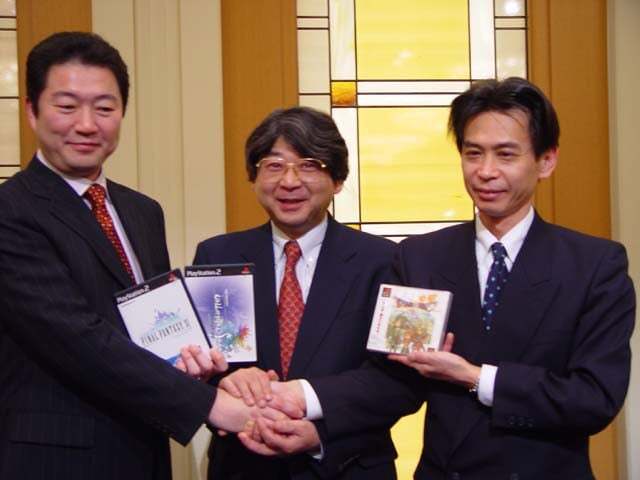
But here's the deal, when you look at the documents annotating the leadership at Square-Enix, you realize the people making boneheaded decisions like letting IO Interactive walk for nothing or selling Eidos for pennies are NOT the internet's favorite targets. I'm sorry to break this to you and the rest of the internet; it's not Nomura and Kitase making these decisions. The people running Square-Enix "into the ground" are a small collection of Enix Corporation millionaires that have been around since the 1980s and are still holding out that their bubble economy business strategies will keep the money train going. Yes, Nomura and Kitase deserve some share of the blame for Square-Enix's mismanagement and played a role in creatively stunting the company's leading studios for a whole console generation. But who were the people in charge of the company that could have ended that? It was the old guard of Enix Corp! Which faction in the company repeatedly treated non-Japanese studios with a different barometer of success? It was the Enix faction. Which group set the bar for Final Fantasy XVI, a PS5 exclusive, to that of Marvel's Spider-Man and Final Fantasy XV? It was the Enix-dominated company leaders pushing into their seventies.
And the habit of every company leader at Square-Enix plugging their ears and pretending everyone who made the company work well during the PS2 era will continue to stick around and grind away for the next decade isn't from Squaresoft. They're from Enix! And while Enix had gobs of cash on standby, an asset Squaresoft lacked in 2001, let's return to the issue of Enix struggling in the twilight of its independence. I already reviewed that their manga and anime label shed some of the most talented names associated with it because Enix dropped the hammer and mandated that everyone make either Dragon Quest comics or shonen-adjacent products. That sounds incredibly shortsighted, and it caused that entire half of the company to bleed money until they struck gold by nabbing the rights to Full Metal Alchemist. Until the release of Dragon Quest VII, Enix was wallowing during the technological shift to the PS1, and they also struggled with the transition to the PS2. In doing so, they let various smaller labels technologically and creatively pass them up. Also, Dragon Quest VII had a HUGELY problematic development and was beset by multiple delays, primarily of Enix's making. As a result, Dragon Quest VII set the standard for the series' "safe" reputation that persists to this day despite it being a genre pioneer for literal decades. Did they care or reinvest in R&D? No. If a game sells well, especially in Japan, then it gets the thumbs up, and that's a mindset that not so curiously seems to permeate throughout the Square-Enix of today. Huh, I wonder where that came from!
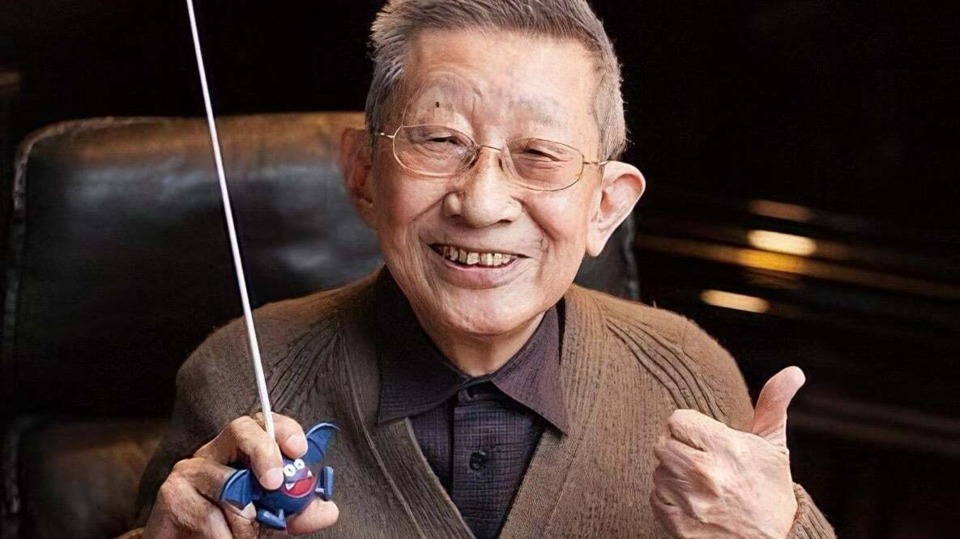
But the biggest crime that Enix's company stalwarts have committed is one Squaresoft avoided in the lead-up to its merger with Enix. Making Sakaguchi's team bow out after The Spirits Within wasn't justified. Still, it led to a new generation within the company getting shots at helming major projects and getting opportunities they never would have gotten if such a changing of the guard hadn't happened. Enix can pretend this next point of mine is not an issue for as long as they want, but no human wins their war against Father Time. Horii won't be around forever, so they must find someone who can act as a face for the series like Yoshi-P advocates for Final Fantasy XIV. And is it time to throw in the towel when it comes to rocking the boat and aging with your core Dragon Quest fans instead of trying to pull younger audiences into the ecosystem? Someone must make that call quickly instead of pretending it's not a problem. Even if Dragon Quest becomes the "safe retro game," it will still make a massive amount of cash. Nonetheless, there are a TON of dragons that need slaying before that can happen, and it's still unclear which hero is willing to accept that call to adventure at Enix.
